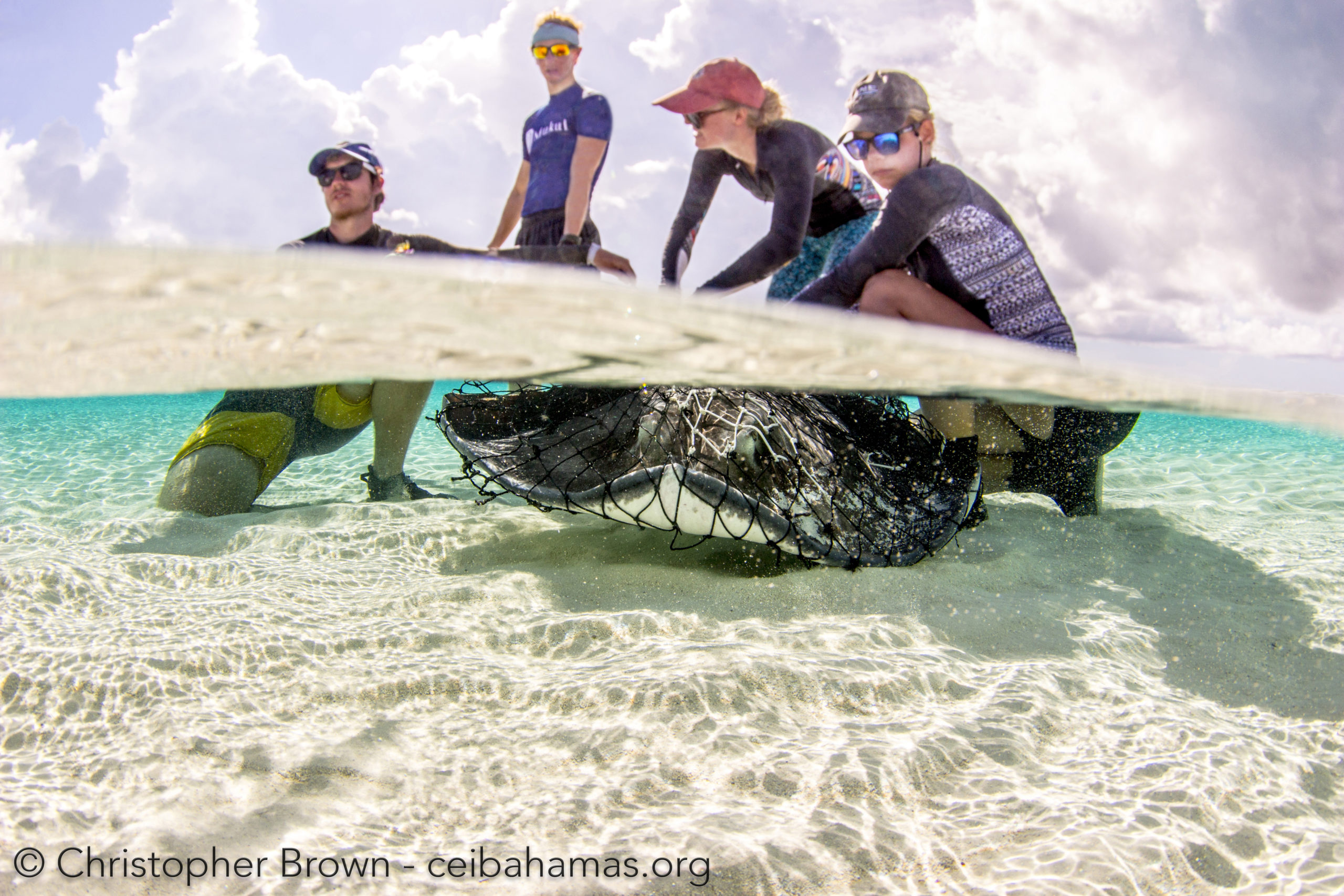https://soundcloud.com/scientistsatsea/the-stingray-episode
In this episode, we get to know our regular presenters a little better. Ethan and Molly talk to Ben, the producer, about the work they have been doing as Masters by Research students for the past two years. Under the supervision of Dr. Lucy Hawkes, Molly and Ethan have been working closely with Dr. Owen O’Shea at the Cape Eleuthera Insitute (CEI) in the Bahamas, to study the stingrays in the local waters.
Molly and Ethan worked with two data deficient species of stingray; the Southern Stingray, and the Caribbean Whiptail Ray The main focus of the research was to investigate the rays’ diets. This involved two methods; stable isotopes analysis and stomach content analysis (you can learn more about them in the podcast).
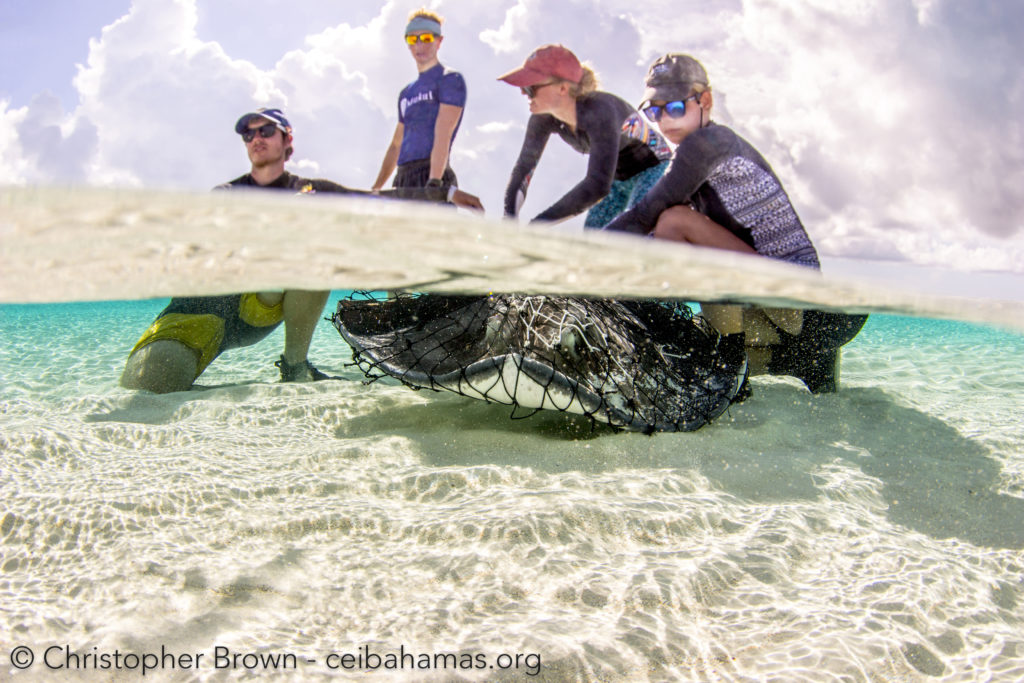
Why does this matter?
Well, as Molly and Ethan put it:
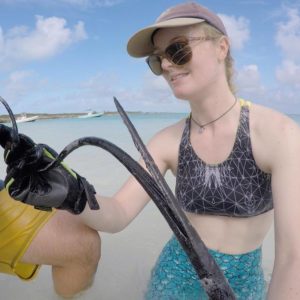
“To understand about the diet is actually to understand general ecology… within an ecosystem, what a predator feeds upon… has a great impact on the population sizes of the prey, and there’s a huge amount of energy moving up in that food chain”
How might such research be applied? Well, in the Bahamas there is no legislation for the protection of mangroves.
“In the Bahamas, there’s lots of these mangrove creeks, and plenty of fish use them as nursery habitats because they offer a lot of shelter within the roots… stingrays occupy these systems as well… they feed on worms, crabs and things within the sea floor, so they use the mangroves a lot to find (their) food.”
You can find out more about why mangroves are so important here.
“Beaches are very popular in terms of tourist economy, so (mangroves) get destroyed quite a lot”
While the stingrays rely on the mangroves for food, it seems they also offer plenty to the mangroves themselves. To find out exactly what they offer, take a listen to the episode.
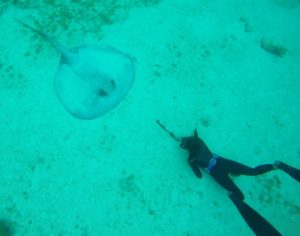
You can also find out about some skills you might not know existed, like stingray herding!
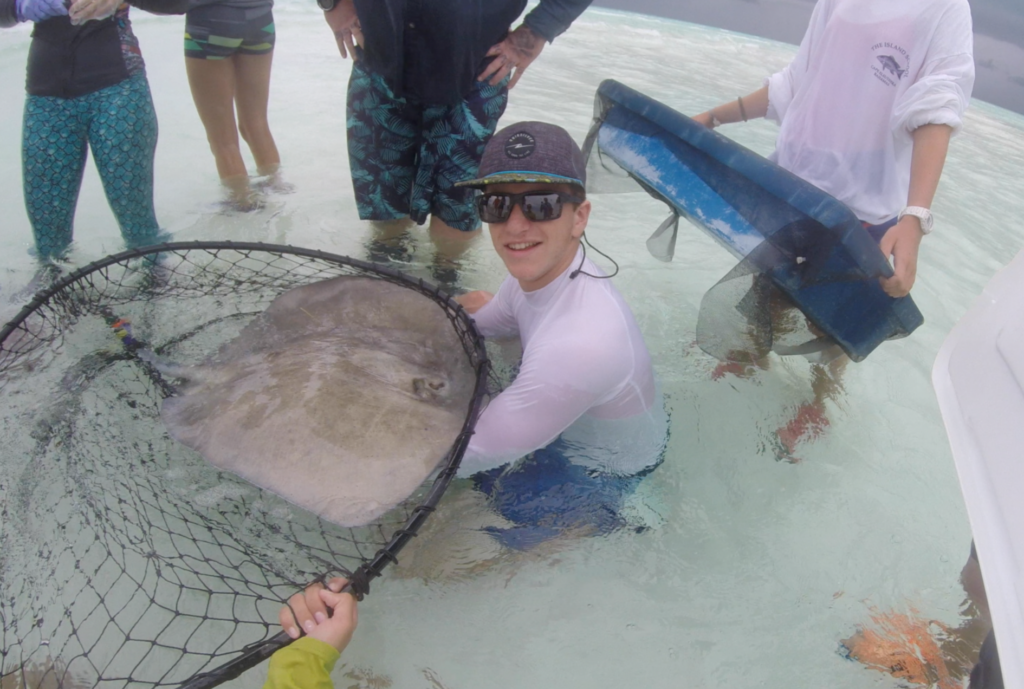
Getting Started with Marine Science
Molly and Ethan initially honed their marine biology skills and interests as undergraduates here at the University of Exeter’s Penryn Campus, studying Zoology and Conservation Biology and Ecology respectively. In their final year they undertook a field course to Eleuthera Island in the Bahamas, this sewed the seeds of their Masters by Research. Click the links to find out more.
Here is a bonus link mentioned during the episode, enjoy! Household items reviewed for science
Videos courtesy of CEIBahamas
Hosted by Ethan Wrigglesworth and Molly Meadows
Episode and show notes produced by Ben Toulson
#ExeterMarine is an interdisciplinary group of marine related researchers with capabilities across the scientific, medical, engineering, humanities and social science fields. If you are interested in working with our researchers or students, contact Michael Hanley or visit our website!

